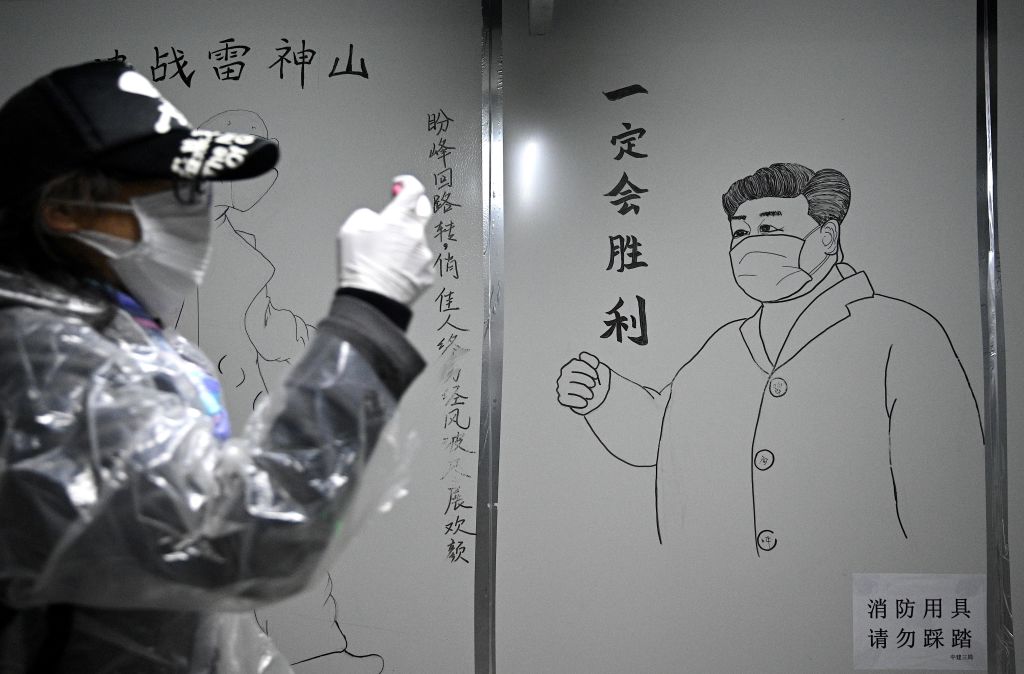China is a bully and the sooner the West understands that, the sooner we can begin to push back. Beijing has banned beef imports from four Australian abattoirs and slapped tariffs of up to 80 per cent on the country’s barley exports. The dictatorship is citing trumped up hygiene and safety concerns, but these are commonly used pretexts for politically-motivated economic punishment. Canberra’s punishment is for joining calls for an independent inquiry into China’s handling of its coronavirus, which the Chinese communist party tried to cover up and which has since spread across the globe, infecting more than four million and killing 300,000.
While Brits wait for Boris Johnson’s government to show some backbone on the rogue state responsible for the deaths of 33,000 of their compatriots, it is heartening to see the Australian government willing to risk the ire of a belligerent Beijing. Scott Morrison’s administration has hardly roared but a disapproving tut is still better than a humble squeak. China is punishing Australia not only as a warning to that country’s government but to the governments of other free nations. The CCP is making clear the repercussions of attempting to hold it to account for its pandemic. Try it, they are telling us, and you’ll be next.
Willy Lam, a veteran China expert, tells the Australian Financial Review that China will ‘continue to use this method — economic coercion — for political ends’ because ‘it doesn’t want an independent inquiry into Wuhan’. This is the standard modus operandi when countries displease Beijing on the diplomatic front. Australian journalist Stephen Dziedzic explains:
‘When Norway awarded a Nobel Peace Prize to Chinese dissident Liu Xiaobo, the authorities in China slapped fresh import controls on one of its iconic exports, Norwegian salmon. When South Korea angered Beijing by installing a US missile defence system, one of its major supermarket chains suddenly found most of its Chinese branches shut down over “safety violations”. The aim is not to financially cripple the other country, but to remind them how easily Beijing can impose economic pain. It’s an implicit threat designed to shape behaviour.’
The beef and barley measures may not be the end of it. The AFR cites reporting from Chinese state media indicating that ‘key Australian exports including iron ore and LNG are not immune’ to similar bans and tariffs. Australian farmers suffering thanks to China’s coronavirus are being punished further because their government wants an inquiry into that coronavirus. Beijing is like an arsonist who, enraged at the firefighters dousing his flames, sets the next property ablaze to teach them a lesson. For rural and regional Australia, still recovering from a ‘black summer’ of devastating bushfires, the impact of Chinese trade warfare will come in lost jobs, shuttered businesses and even more workers queuing round the block at their local job centre.
The UK has a moral imperative to stand in solidarity with Australia against the neighbourhood bully trying to push it around. It may no longer be our neighbourhood but what happens there affects all of us. If Beijing succeeds in cowing Australia into dropping its support for a Wuhan inquiry it will be emboldened to do the same with the rest of us. China will strong-arm its way out of responsibility and the world will be denied vital information about the origins, spread and management of Covid-19 that could be used to improve international responses to future contagions.
Free nations should be joining Australia in its call for an inquiry. Doing so will bring the wrath of Beijing and with it painful economic consequences but even that is preferable to cowering before the regime that did this to us. We do not need the nations we do business with to be governed by saints but we do need them not to be covering up the spread of deadly viruses and threatening us with an economic thumping if we dare raise a peep in protest. China shows no signs of changing its ways and so we will have to change. We can’t stop trading with the People’s Republic altogether but we can step up domestic manufacturing of our biggest imports (telecoms, office machinery, electricals and clothing) while gradually shifting our trade to more benign markets. If that means consumer goods get more expensive, then more expensive they will have to get. If we have to sell our gold and petroleum to someone else for less, so be it.
The Tories have not been terribly impressive on foreign policy or security for some time but their reluctance to confront the China threat stems from a very specific mindset. We might call this the FT/Economist/Council on Foreign Relations worldview, in which the rise of China is inevitable, the West will have to adjust and we cannot afford to do anything but make ourselves more economically dependent on Beijing. The eclipse of the West by China is not inevitable — it is a choice. As Brexit and the election of Donald Trump demonstrated, though perhaps haven’t followed through on, globalisation was only unquestionable until national electorates began to question it. The Chinese depression we are heading into is not an argument for abandoning globalisation but it is an argument for curbing China’s dominance of the global order and economy.







Comments